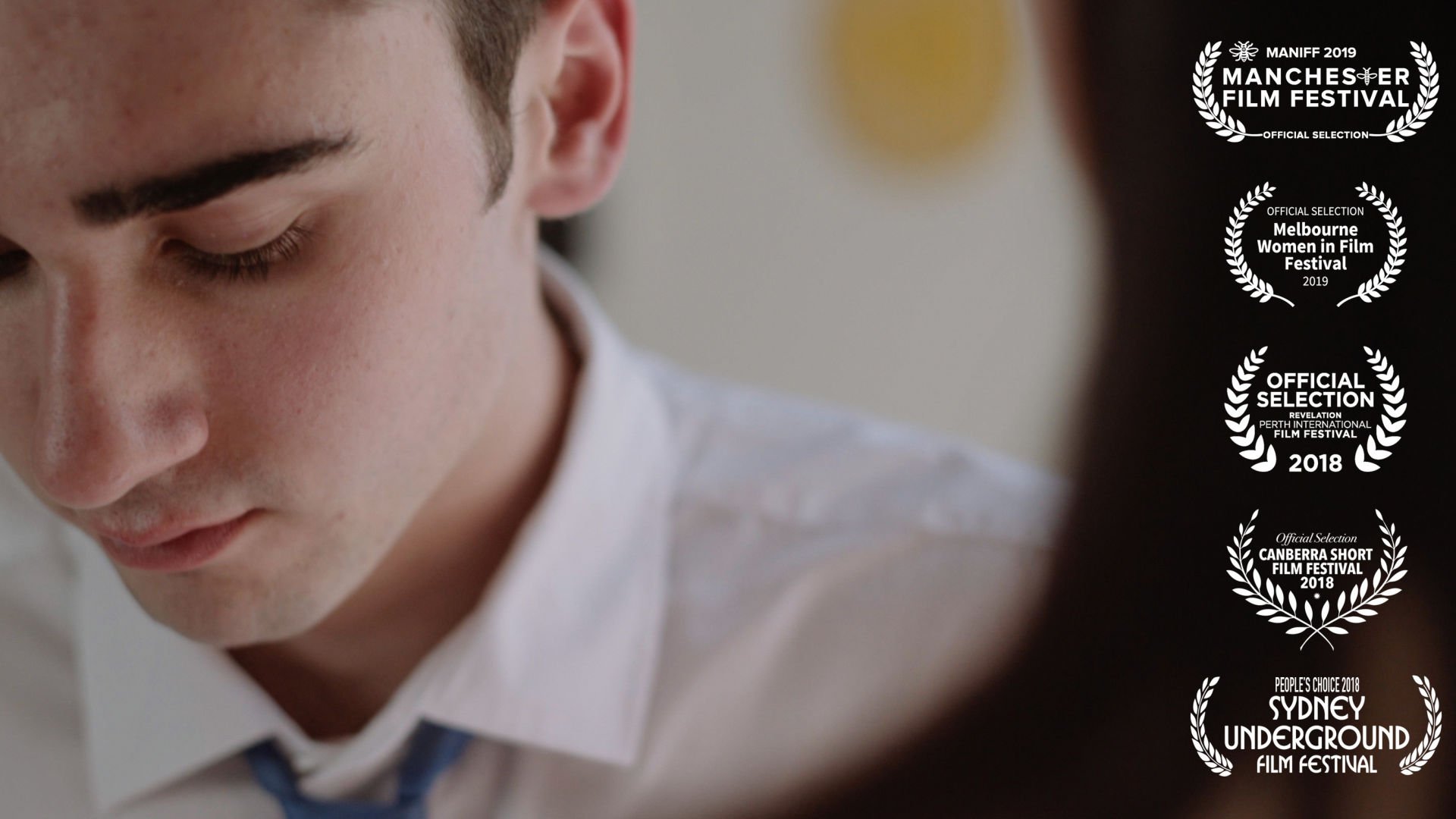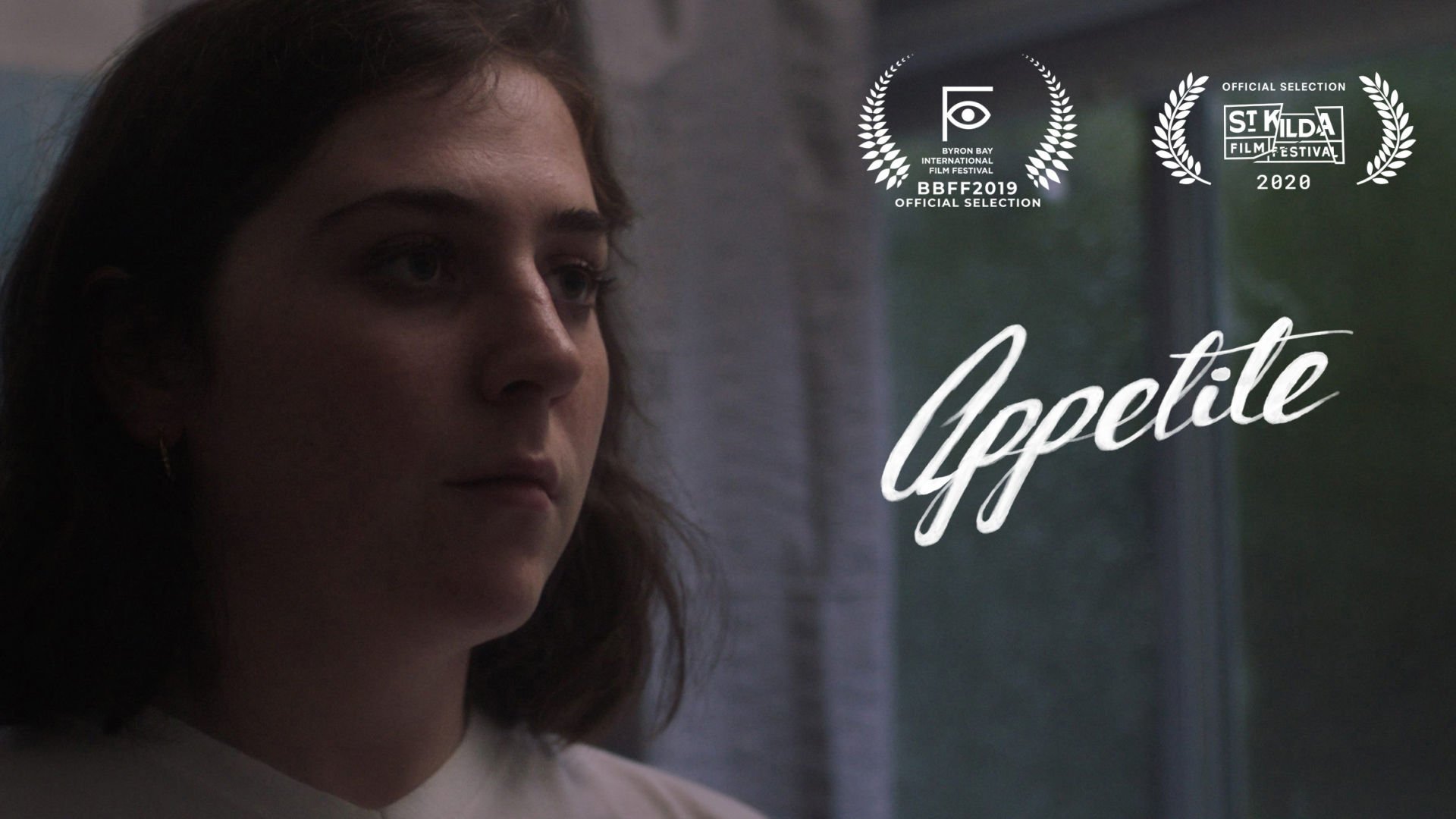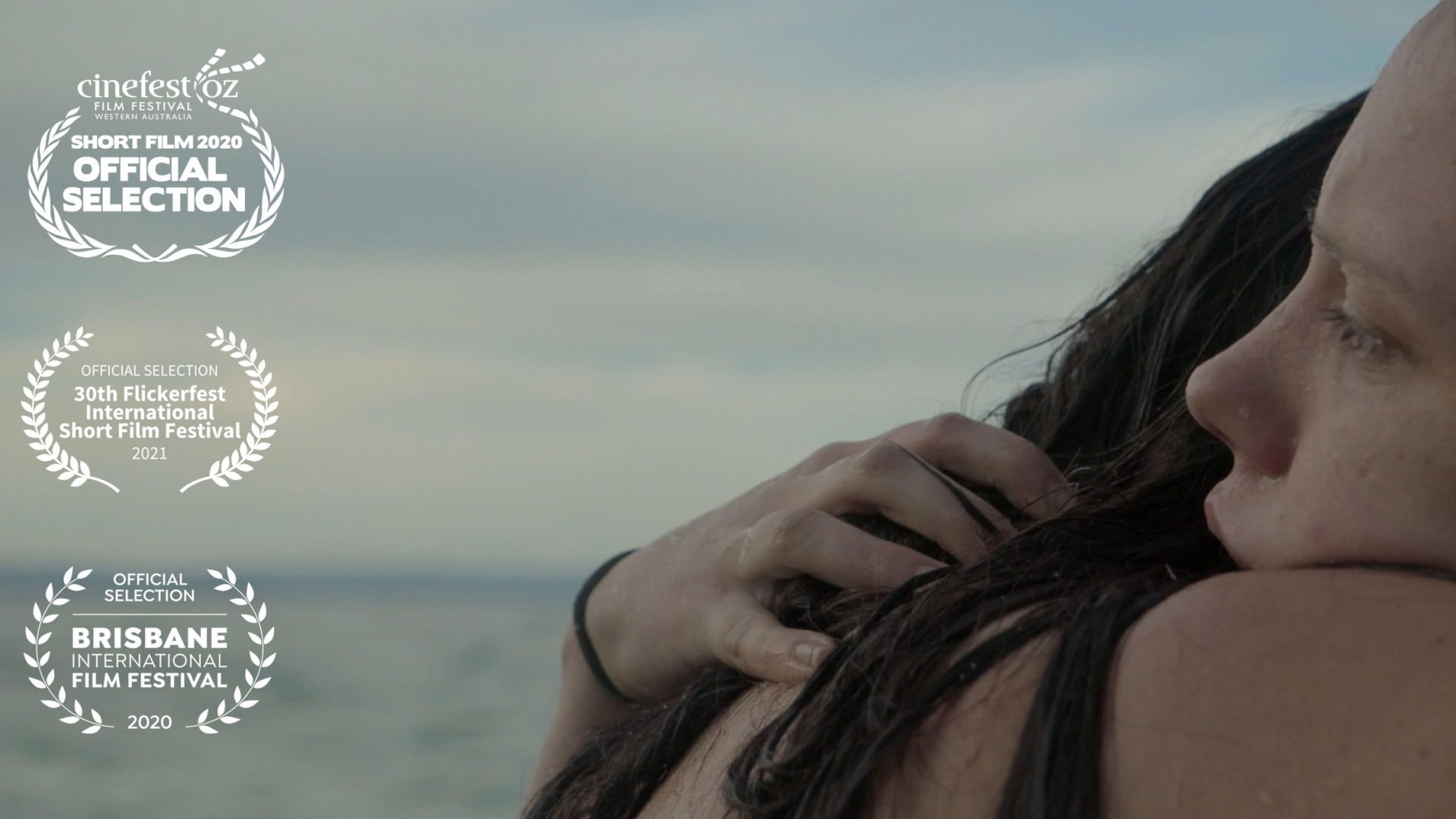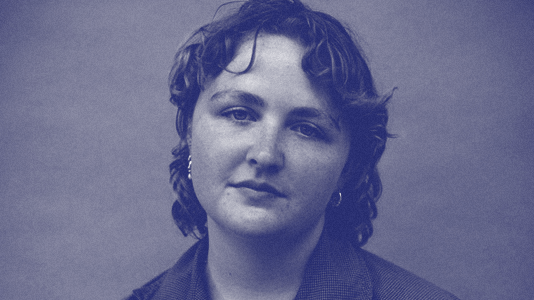2020 was full of creative highs and lows. Isolation and social distancing created unique yet sometimes painful experiences for us all. Those in the creative industries were left particularly vulnerable to the restrictions and uncertainties we faced.
Claudia Bailey is no stranger to uncertainty. As 2020 started, Claudia found themselves in a new city with a fresh film degree in-hand, unknowingly about to face a year of lockdowns, cancelled plans and closed borders. We sat down with the 22 year-old filmmaker to talk about their journey last year and how 2020 has impacted our collective creative consciousness.
Erin Ewen: Tell us about yourself.
Claudia Bailey: My name is Claudia Bailey. I’m a Cancer. I’m a non-binary filmmaker and I go by they/them pronouns. My goal in the world right now is to share stories of queer joy, in order to lift up marginalised voices.
I’m trying to find a way for my values to align with my career path. The film industry is interesting because it’s definitely not the most ethical industry. There’s big money involved, big executives and fame. I think there’s an obv- ious beauty and heart in storytelling. I want to find a way to do that in an ethical manner.
EE: How did you spend 2020?
CB: I spent 2020 having just moved to Melbourne. I literally graduated from film school on a Friday, booked a ticket that weekend, drunk, and moved to Melbourne. It felt like my life was just beginning. I was starting to finally find my roots. I was working at Melbourne Queer Film Festival, I had beautiful friends. And then COVID-19 happened. I’d moved into a new share house a month or so before everything happened. We’d have family dinner every night, play card games and watch movies. They were all very lovely people, but I just felt so isolated.
I regard leaving Melbourne as my big heartbreak of 2020. I love Melbourne and I left before the second lockdown. I didn’t realise — no one realised — how bad it was going to be. I am grateful that I got out of there and got to be in Sydney and make a life here. But it was a big OUCH for my heart. When I left Melbourne, I didn’t think I was saying goodbye forever. I thought I was just visiting Sydney. But here I am.
EE: How did your experience of lockdown impact you?
CB: Obviously, we all had these experiences last year, but I was just so isolated. I was in a city without my family and without my best, best friends. I think I was just really numbed out. I definitely found that all of that time alone completely changed a lot of things. I had time to process stuff that I hadn’t processed for years. It felt like everyday was a roller coaster. There were dark times, and some really beautiful moments. I think it just allowed me the actual time and space I needed to work my shit out. I really got a shake up — I hadn’t done anything creative or worked on a project in almost six months...I just lost my drive. I started reflecting that up until that point, I’d always made things for myself. But, as I was watching the world crumble around me, I realised I needed to do something bigger than myself. COVID-19 gave me a huge slap in the face — I realised my thoughts had become really boring. So I started to look around and think bigger. That was a gift being so lonely brought me.
EE: What helped you cope creatively this past year?
CB: Inspiration. I watched and read so much. I re-read my favourite book, ‘Just Kids’ by Patti Smith, and it helped me come back to why I want to make films. Once you have the inspiration, you need momentum. It can take months to get that, and it can be fleeting. But I really think, boring as it sounds, it’s routine. Even though I had nothing on, I would create a really strict structure. I’d wake up, go for a bike ride, have breakfast, and would work until lunch. I just did a bunch of applications and worked on some old script ideas. But getting into a routine has allowed me to get to the place where I am now.
EE: What are you currently working on?
CB: I’m currently in pre-production for my latest short, ‘Right Here.’ It’s a non-binary story of joy and hope. After coming out as non-binary to their parents, Grace materialises at their future selves’ birthday party and realises everything they want is already inside of them, right here. It’s the kind of film I wish my younger self could’ve seen. To show them that they will find their place and it will all just be okay somehow.
As the two leads are non-binary, it was essential to cast non-binary actors (Zoe Terakes & Audrey Mason-Hyde). I shouldn’t need to explain why but if I must; it’s important because representation for minorities is already lacking. Add on the harmful tropes people without the lived experiences try to get away with and you’ve got yourself a lot of pain inflicted on people that don’t deserve it. Nobody does. If you have more questions, I implore you to Google before thinking about asking anybody from that particular minority group. It takes a lot from these people.
I’m so excited to be able to show these two incredibly strong, charismatic, beautiful non-binary people to the world. I want to show them in strength, in light and in joy. By casting Zoe and Audrey, that’s what we’re doing.
EE: Can you tell us about your previous works?
CB: I’ve had three short films do the festival circuit. ‘Cherry,’ my first film, is an anthology of virginity stories. Naivety really brings you a long way, now I can’t believe I did that. I’d never directed in my life, but it went on to do really well. ‘Appetite’ is my my most personal work, about shame after sex. It didn’t go as well, but that didn’t matter. I just needed to put it out into the world. My most recent film was ‘Sunburn,’ which I wrote on. Making ‘Sunburn,’ was an experience that changed my life. It’s where I met Brenna Harding, who is producing ‘Right Here,’ and Zoe Terakas. We had a five day shoot away and I bonded so much with such wonderful people. It was very much a sliding doors moment in my life.

EE: What was your overall experience of your post-grad year?
CB: The year after film school is famously really hard. In some ways, I’m grateful that it was hard beyond my control. If COVID-19 didn’t happen and I found it hard, I would have questioned why I wasn’t succeeding. I really think when I graduated I knew I needed some time off. Since I started, even in high-school, I was constantly thinking of ideas and working on projects...full speed ahead. But I needed to go and live a little. So my plan was to spend most of the year hanging out and just being a human. Having a hospo job that I actually liked. Seeing my friends and just having a nice time. So in that way it went exactly to plan. I don’t regret anything, I feel like it taught me so much.
EE: Can you tell us about the journey you’ve been on to champion queer voices on screen?
CB: Finding my queerness was one of the most joyful experiences of my life. It made me realise that I’m loveable. I had never seen what I was feeling represented at all. And I just thought about younger me, having no clue about their repressed homophobia and thinking how great it would have been to see a character who is joyful AND queer, living a magical experinece. Versus them being a side character who is killed off or just the punchline of the joke. There is still so much I have to learn. But I know that I want to give space and positive representation to how beautiful queerness can be, rather than the painful hard-ships of coming out and being bullied. Obviously that’s part of it — and it’s so important to acknowledge our history — but there is also so much beauty in it.
EE: In 2019 you were named Young Australian Filmmaker of the Year at Byron Bay Film Festival. How did that experience impact you?
CB: I feel like those things don’t really impact you on a personal level. Getting that hasn’t necessarily changed my thoughts on myself. It’s definitely a nice feeling and it feels validating, which is cool. Getting into film festivals and winning awards impacts you in ways you can’t see. It’s more the perception of me that is impacted. Personally, I don’t think I’m any more qualified and it doesn’t change my relationship with my work at all. The coolest part was that they gave me a hamper. I’d never gotten a hamper. That’s what I was most excited about. I love free things.
“I want to give space and positive representation to how beautiful queerness can be.”

EE: Did 2020 change the Australian Film Industry?
CB: Absolutely. So many lost their jobs and were really struggling. The Arts are famously underfunded, even though everyone in lockdown turned to art — perfect irony. But then in some cases, it also led to a lot of American productions being shot in Australia, thus giving a lot of jobs to Australian people.
Everyone has had to adapt and change. It’s going to exponentially impact every part of our lives, financially, personally and generationally. It’s hard to foresee those direct impacts. Right now people are viewing COVID-19 as a thing that happened. But it’s still happening in 2021. And I’m interested to see how that’s represented in stories in the future. Like, masks or doing the elbow tap thing — or are people just going to leave that in 2020? I’m sure there’ll be some really clever TV shows and films that will explore that.
EE: How are you planning to spend 2021?
CB: Last year I really learned how to slow down and just look around and ask — how are we going to make today special? In 2021 I’m aiming to live truthfully. Rather than fearing, putting up boundaries, being scared, cold and trying to preserve yourself...living truthfully is about running headfirst and opening your heart. If you fall over, you get back up and you keep going. I want to try and do that. To be vulnerable, communicate, own up to when I make a mistake...that’s my personal aim.
Professionally, the making of ‘Right Here’ is going to be so special. I think it’s going to change my life. I just have feelings about it — the people involved, the places it’s going to go, I just know it will.

EE: What were your New Year’s resolutions?
CB: To wear my heart on my sleeve. To spend purposeful alone time. To not give into toxic behavior patterns. To say how I feel. To have hard conversations. To be less afraid. More brave. Acknowledging my privilege and to making actionable change.
EE: What would be your advice for other young creatives?
CB: Just go and do it. There’s no perfect amount of preparation. Some people have so much pride and they want to be perfect. But don’t think about it. As soon as you start getting the ball rolling and you get people involved, all of a sudden you’re shooting, then you’re editing it. There’s no point thinking about it too much. Just do it. Nike sponsored. (not actually)
Work out your values, and stick to them. I really admire people who know who they are and what kind of stories they want to tell. Spend time actually thinking about what kind of things you want to put out into the world and most importantly, why? I’m a big advocate of repres- entation, and being as ethical as possible. Why are you the one to tell the story? Why now? Why does the world need to see it? How does it make the world better? Are you the right person to tell it? It’s really important to constantly evaluate your place in all of it. Recognise your privilege. If you aren’t the best person to tell this, how can you lift others up to do so?
You’ve gotta constantly keep your ego in check. When you’re telling stories, there are accolades and fame in far-sight. It’s easy to get wound up and self important about your work. Remind yourself that you’re not a savior. You’re not some tortured artist. You’re someone who, hopefully, is trying to make the world a better place and spread empathy. People are so influenced by stories. In my own develop-ment, I definitely didn’t see enough queer characters on screen. And if I did, things would have probably been a lot easier. So just think, what do you want to be giving to the world? What’s your responsibility?
Claudia Bailey is a filmmaker. You can find them on Instagram @cloudiabailey


 -
-